Have you ever heard someone refer to God as "Yahweh"? That's just the English for His revealed name in the OT, right? That must mean it's the ancient Christian practice!
In Stone Choir spirit (link in bio), let's look at the genealogy of this one, because it is wild. 1🧵
N.b. this thread is *not* about "the secret name of God," or YHWH, or Jehovah, or vowel pointing, or any other such debate. It is solely focused how & when the six letters "Yahweh" came into common use in English.
* denotes url links at the end since twitter suppresses them. 2🧵
* denotes url links at the end since twitter suppresses them. 2🧵
A friend asked this week whether a CPH commentary that insists on translating Lord as "Yahweh" is subversive.
My first instinct was "yes, absolutely." But what do I know? So I turned next to Google Ngrams, which searches over 8M books going back centuries. 3🧵
My first instinct was "yes, absolutely." But what do I know? So I turned next to Google Ngrams, which searches over 8M books going back centuries. 3🧵
Ngrams shows just what I imagined: the term was invented in the last two centuries, and took off in popularity very recently. Neither of these are what you want to see when you're considering sound doctrine. An unchanging God does not engender fickle beliefs. 4🧵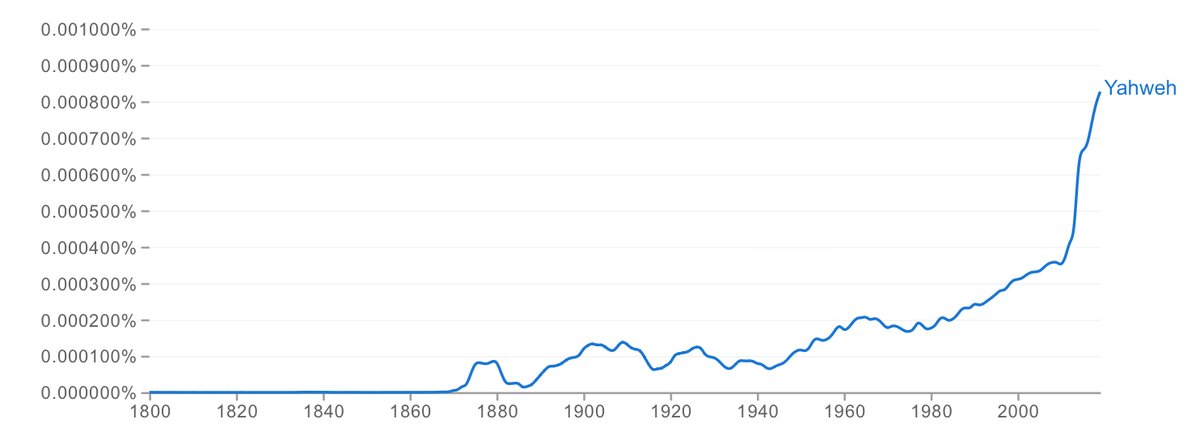

Ngrams also lets you drill down to any date range to see precisely which hits are represented on the graph. After some spelunking, metadata errors, lots more googling, and hours of reading original source material, here is how we were tricked into saying "Yahweh". 5🧵
For thousands of years, there has been debate over the pronunciation of "YHWH"–the name "I am" which God gave Himself from the burning bush in Exodus 3.
Written Hebrew of course has no vowels, so with only the text, there are numerous possibilities for any consonant set. 6🧵
Written Hebrew of course has no vowels, so with only the text, there are numerous possibilities for any consonant set. 6🧵
"Jehovah" itself is one such made-up word, which deliberately transposes the vowel sounds from "Adonai" onto the consonants in "YHWH". While the intention at the time was pious, it is highly relevant that no such thing was done in Jesus' day. 7🧵
The Greek Septuagint (LXX) is the Old Testament that was commonly used in Jesus' day. Hebrew was already a dead language in the 1st century, meaning it was no longer spoken conversationally and most couldn't read it. Jesus quotes the LXX, as does the NT hundreds of times. 8🧵
So it is relevant how the LXX treats the YHWH "I am". What we find is that the word is simply and naturally translated "ego eimi"–"I am". The 4th century Latin Vulgate also faithfully translates it simply as "ego sum". Zero interest in it as a proper name, vs. a declaration. 9🧵
This fact is crucial to the question because it ties directly to Christ's Divinity. When Jesus said, "Before Abraham was I am" He said ego eimi, and the jews tried to murder Him on the spot for blasphemy. He didn't use some special Hebrew utterance, but "I am"–God's Name. 10🧵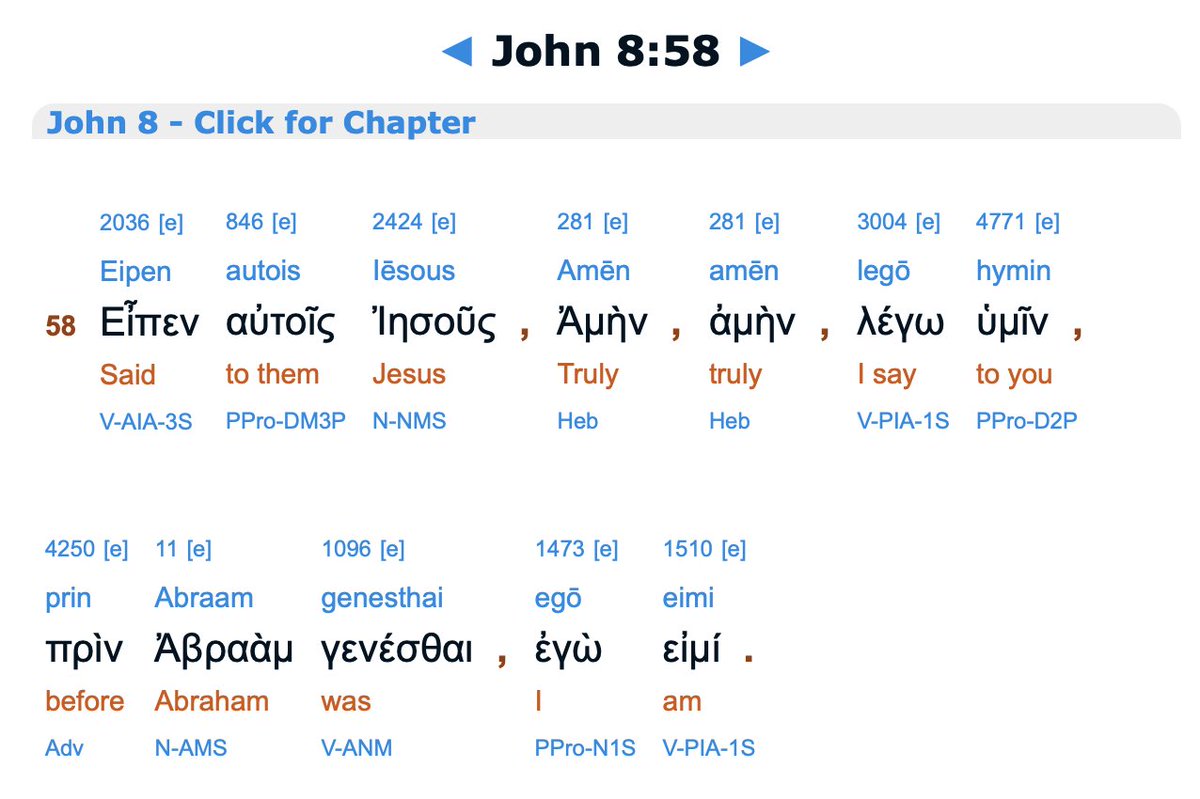

For over 14 centuries, every Christian believed that God's revealed name to Moses was "I am". In the middle ages, "Jehovah" was invented as a speculative translation of YHWH, a stark departure from treating it like the real word that it is, rather than a magic incantation. 11🧵
In 1833, a German linguist & theologian named Wilhelm Gesenius joined this more modern trend of speculating on those sounds. In a later edition of his Hebrew & Latin Manual Lexicon, he (admittedly) theorized that "Yahweh" was perhaps the original pronunciation. 12🧵
Gesenius invented*1 his "Yahweh" theory as one possible pronunciation based on his hypothesis that Hebrew had been influenced by the same ancient root that produced Jove & Jupiter through their contact with the Egyptians. It appears that he retracted within a few years. 13🧵
It is vital to notice that this particular speculation is only possible if one denies the Inspiration of Scripture.
The "Documentary Hypothesis" (DH) had taken root by the early 1800s, and informs everything that happens in the rest of this thread. Google it. 14🧵
The "Documentary Hypothesis" (DH) had taken root by the early 1800s, and informs everything that happens in the rest of this thread. Google it. 14🧵
In 1856/57, Alexander MacWhorter III was himself inspired by discovering Gesenius's off-hand speculation. What was all but a footnote in one man's work became another man's passion. MacWhorter did not see in "Yahweh" just another pronunciation; he had found a secret key! 15🧵
This is the middle of the thread, but it is the pivot point upon which this entire story hinges. MacWhorter (MW) did not simply treat "Yahweh" (which he spelled "Yahveh") as a pronunciation; he *reinterpreted all of Scripture* on the basis of his exegesis of this new word. 16🧵
MW published a 179 page book*2 titled "Yahveh Christ, or, The Memorial Name" dedicated to his "new Christology" which reimagines all of Scripture in the context of "I am" being a demonic lie intended to conceal a *future* promise. 17🧵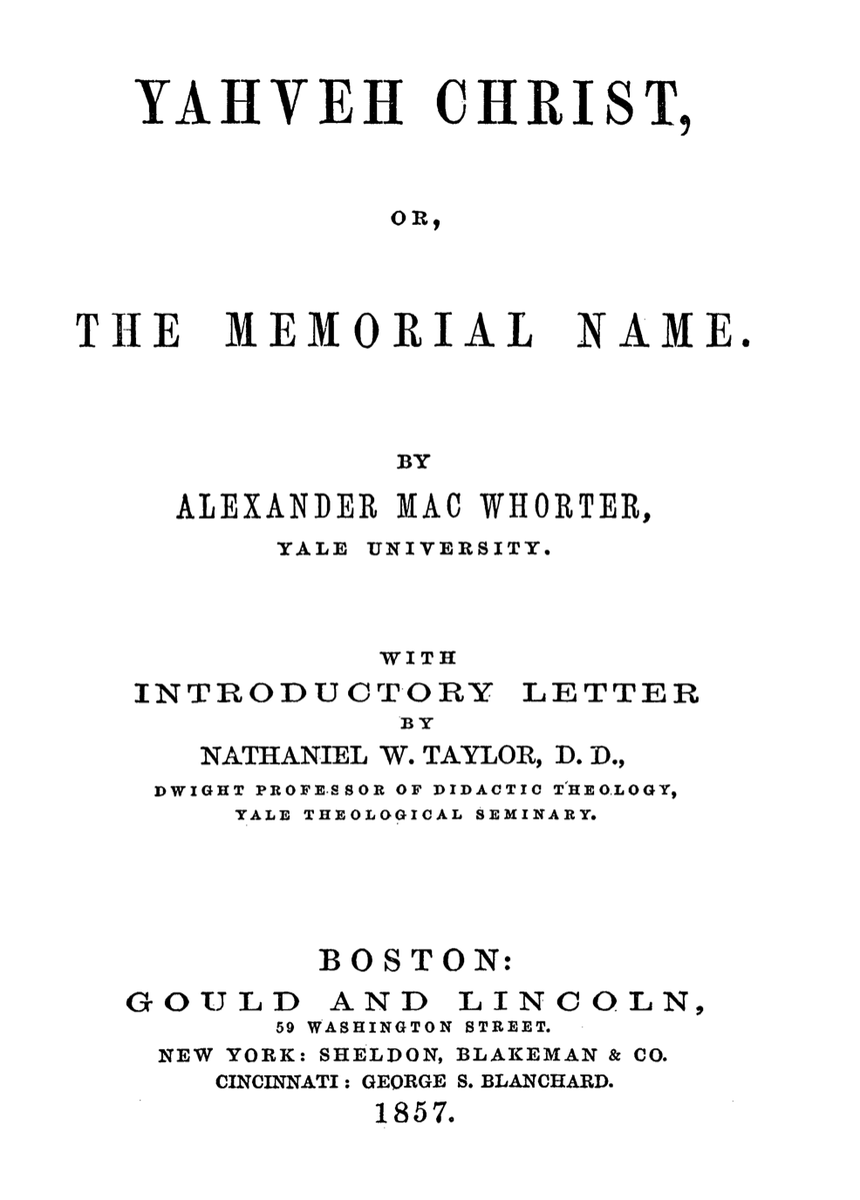

MW rejected "I am" out of hand as pagan superstition, the result of the corrupt & unreliable LXX.
Not only did this put him at odds with four thousand years of believers, but most importantly with Christ Himself and the NT which quote it as Scripture. 18🧵
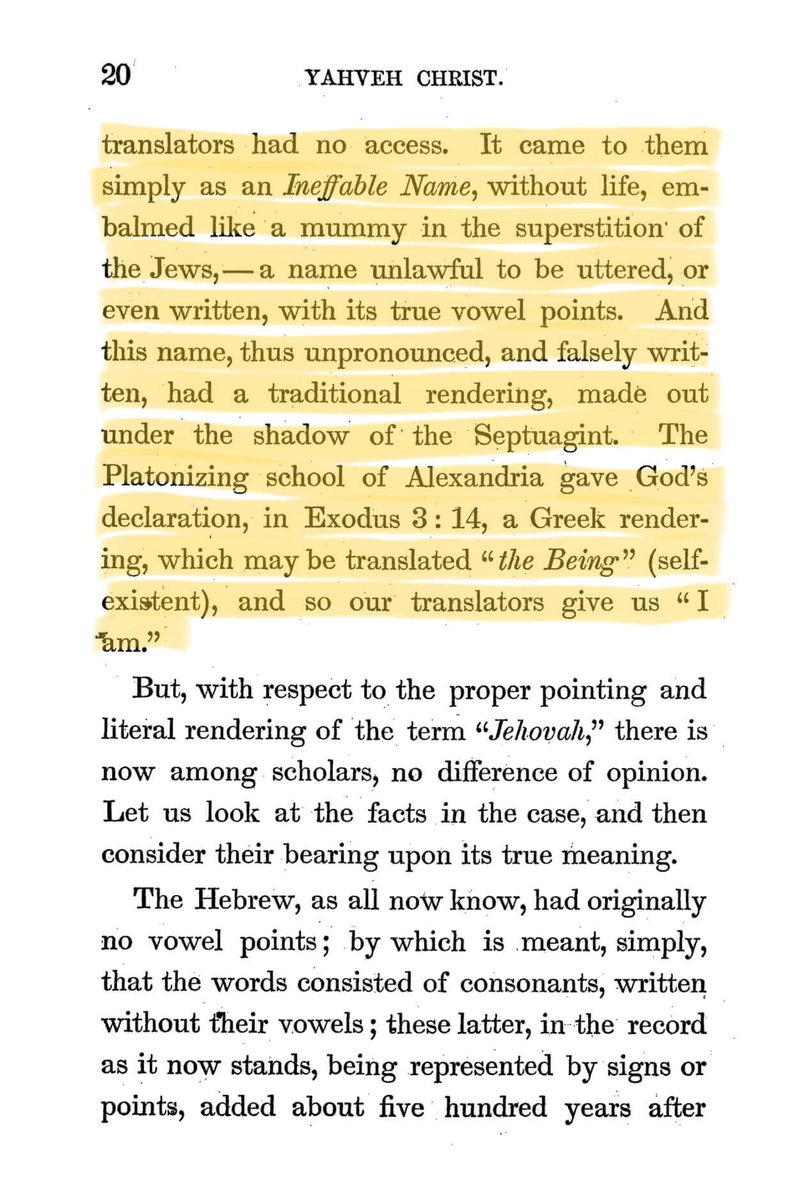
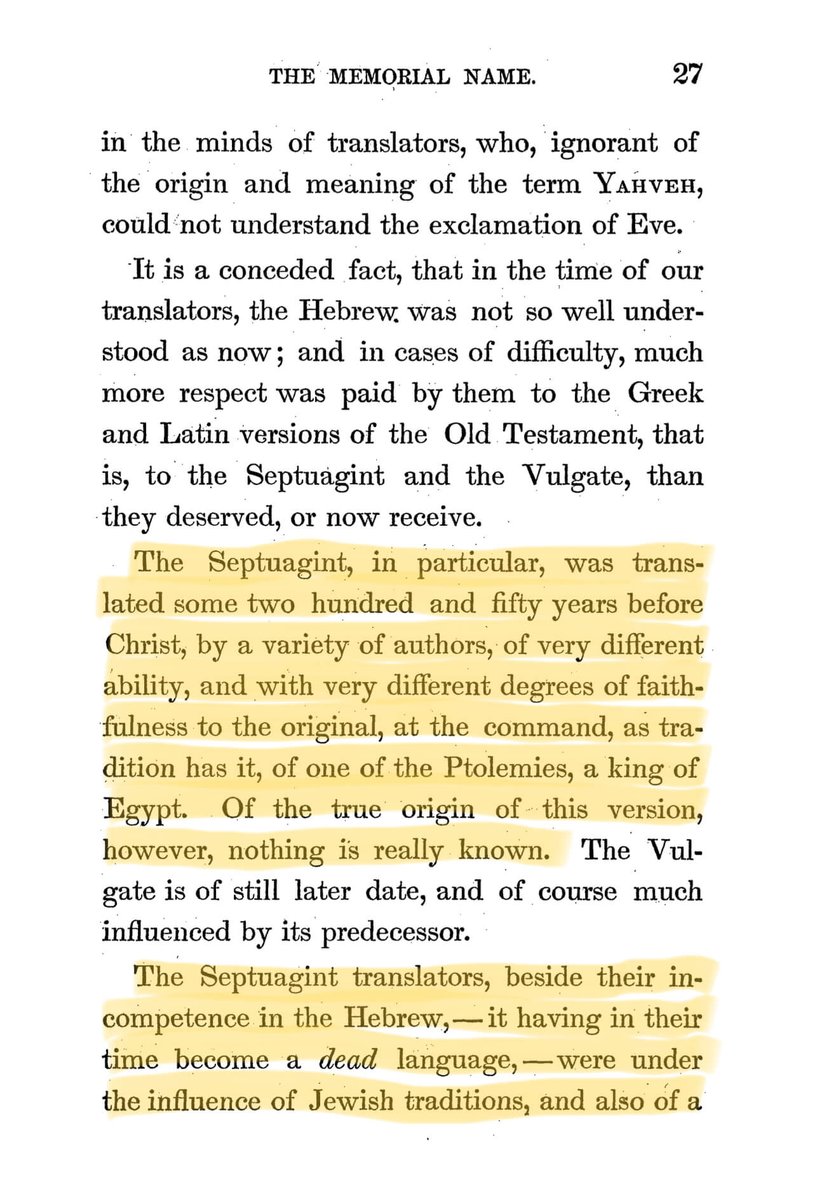
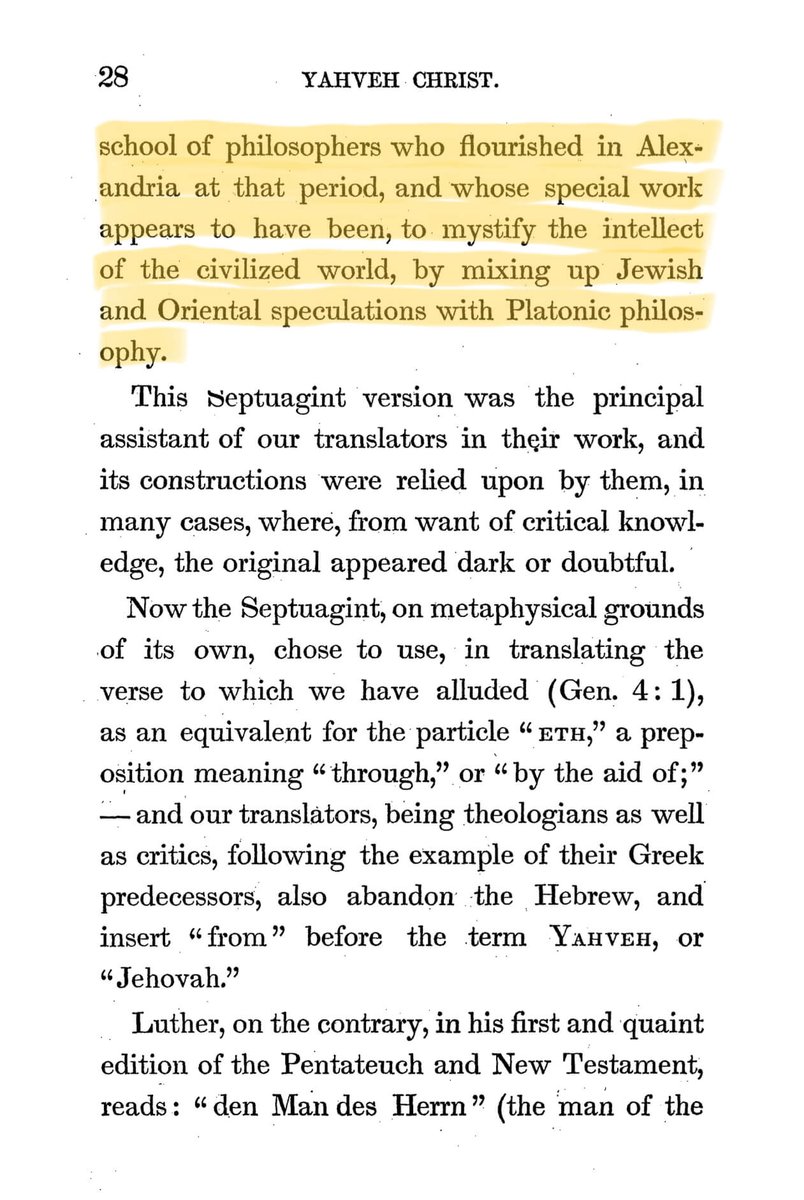

Not only did this put him at odds with four thousand years of believers, but most importantly with Christ Himself and the NT which quote it as Scripture. 18🧵



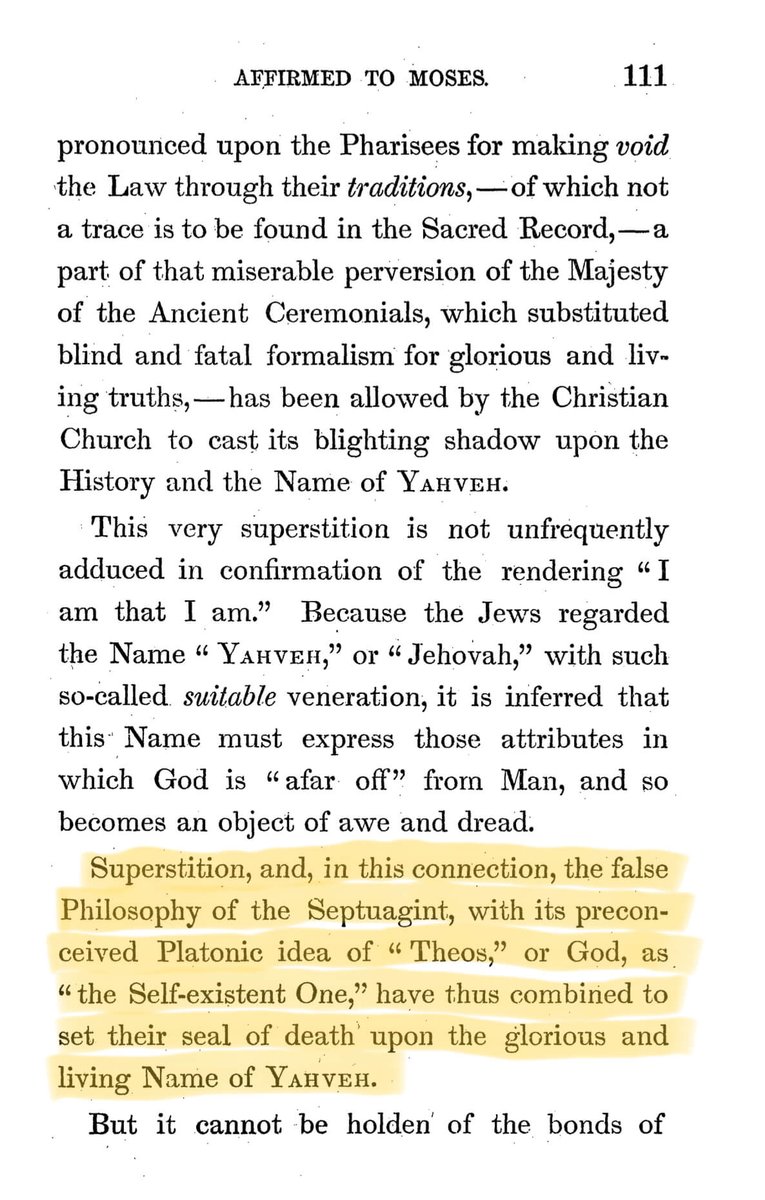
Having opened the door to apostasy, MW springboards from Gesenius's careless aside to transform "YHWH" from God's eternal "I am" into a fundamentally opposed phrase in the future tense–something that doesn't even exist as we understand it in Hebrew–"He who will be"! 19🧵
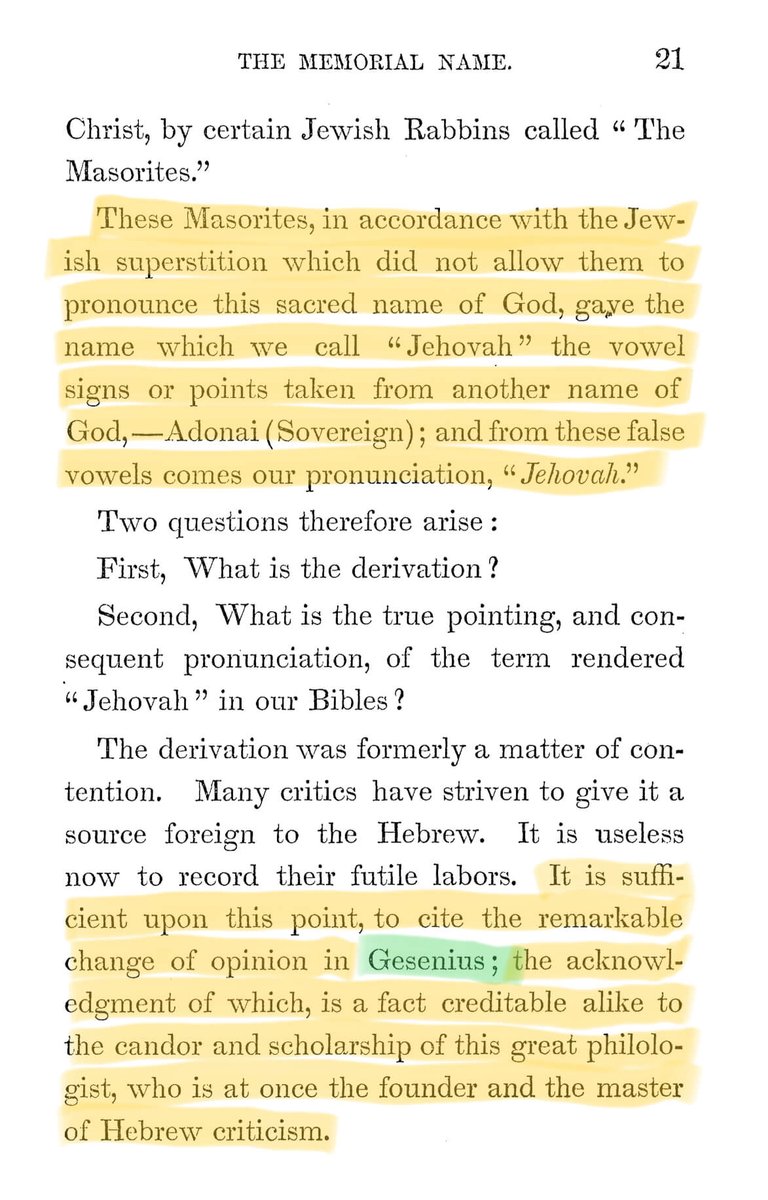
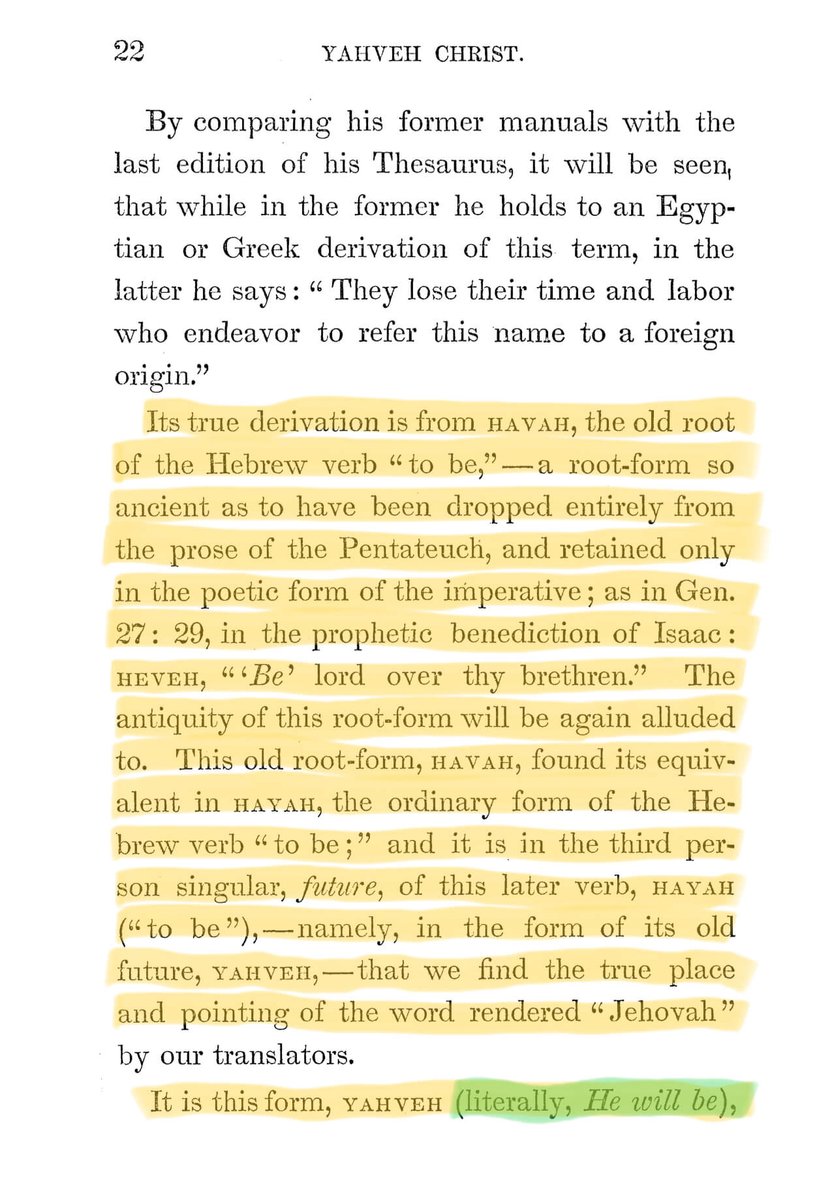
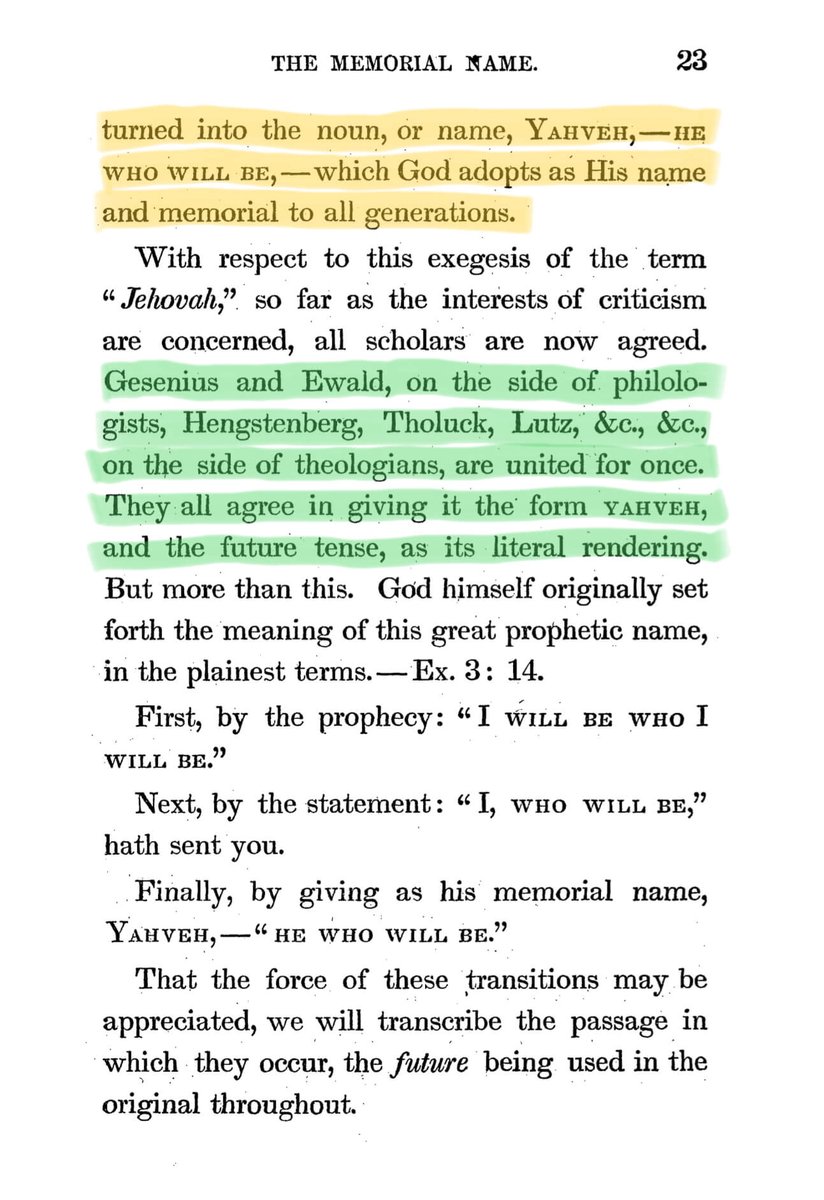



Even while in places railing against his contemporaries who questioned Scripture, MW's entire thesis rests on DH and the JEDP theory which nullifies Mosaic authorship of the Pentateuch. 20🧵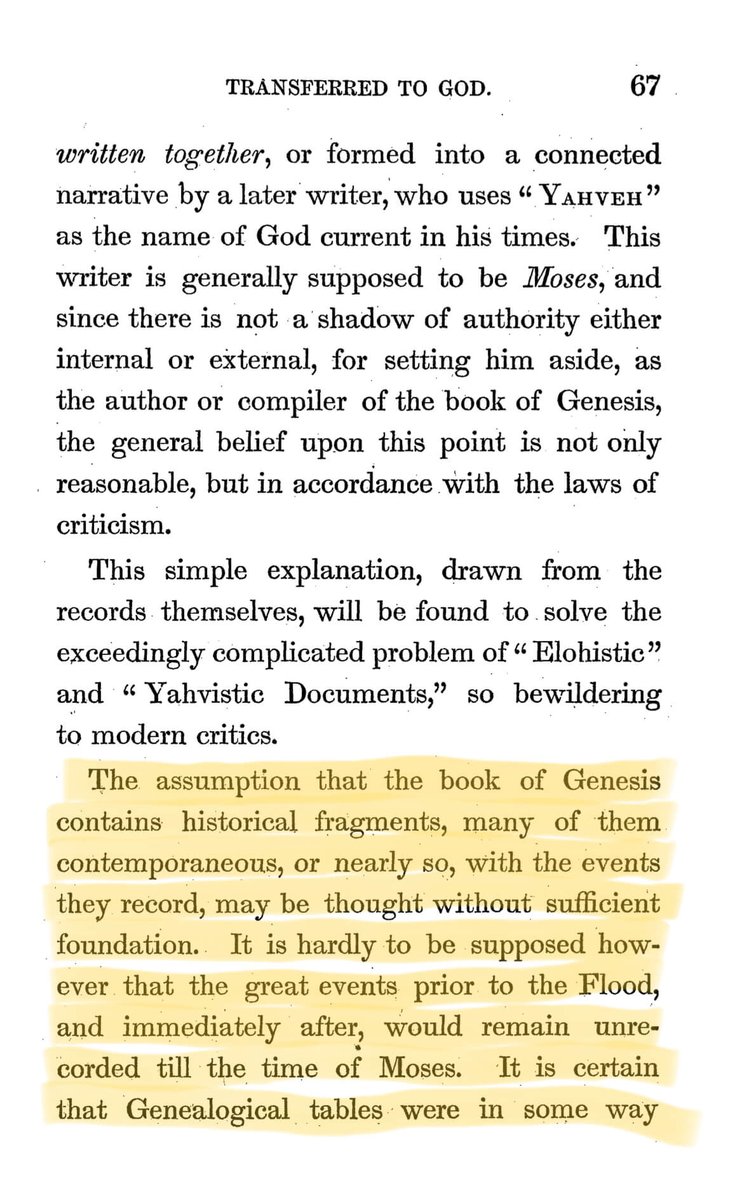

It is also notable that while LXX is filled with "Theos" or God, MW is passionate that referring to God as God is actually a pagan philosophical trick which could only possibly exist due to the very translation Jesus used but MW condemns out of hand. 21🧵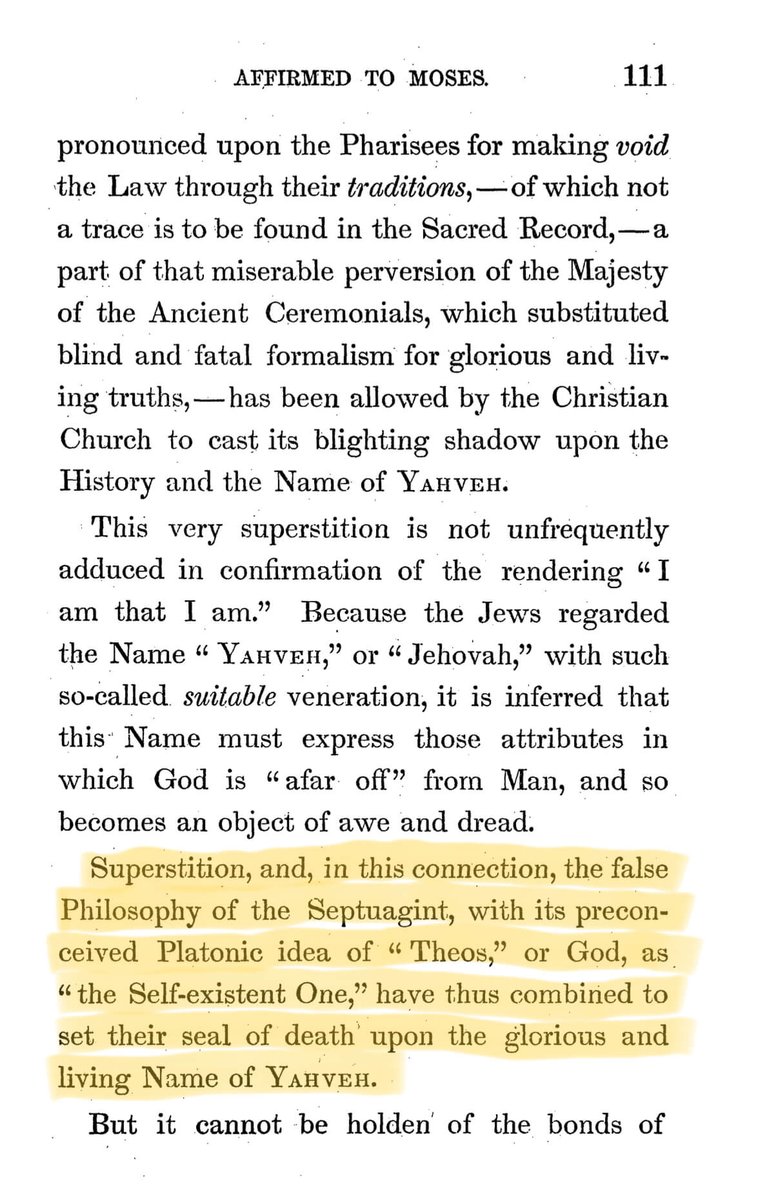

The immediate response*3 to MW's book was summary dismissal and ridicule. The entire premise is quite clearly antithetical to Christianity, MW's own personal intentions notwithstanding. 22🧵
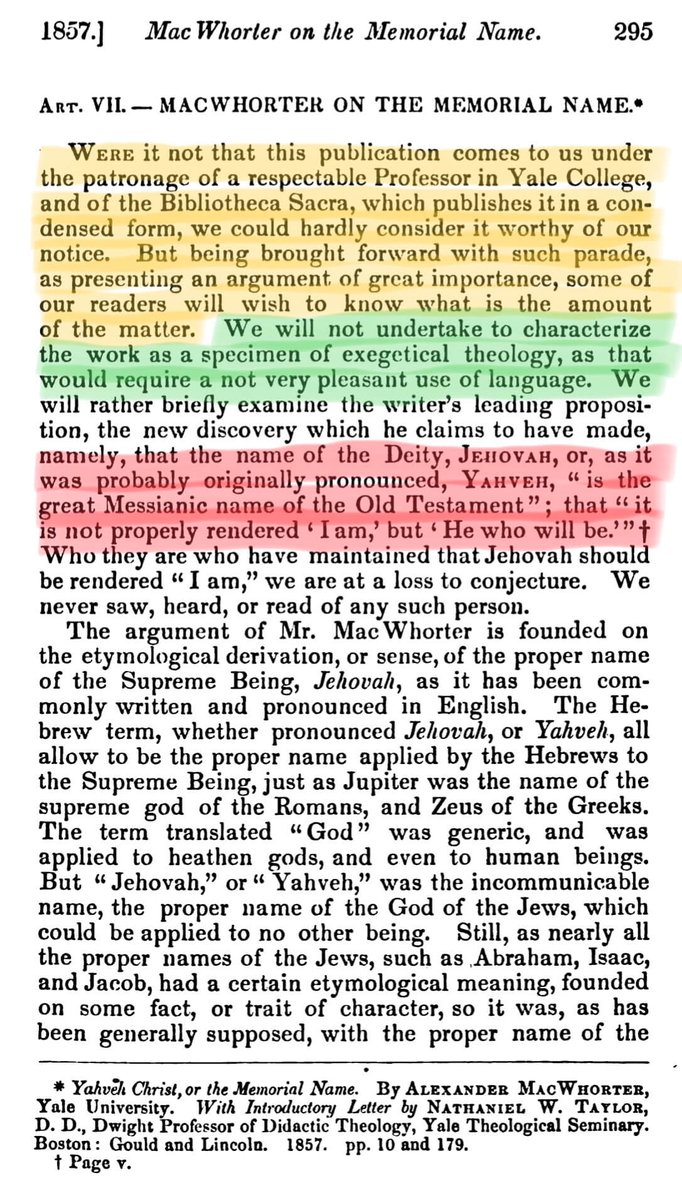
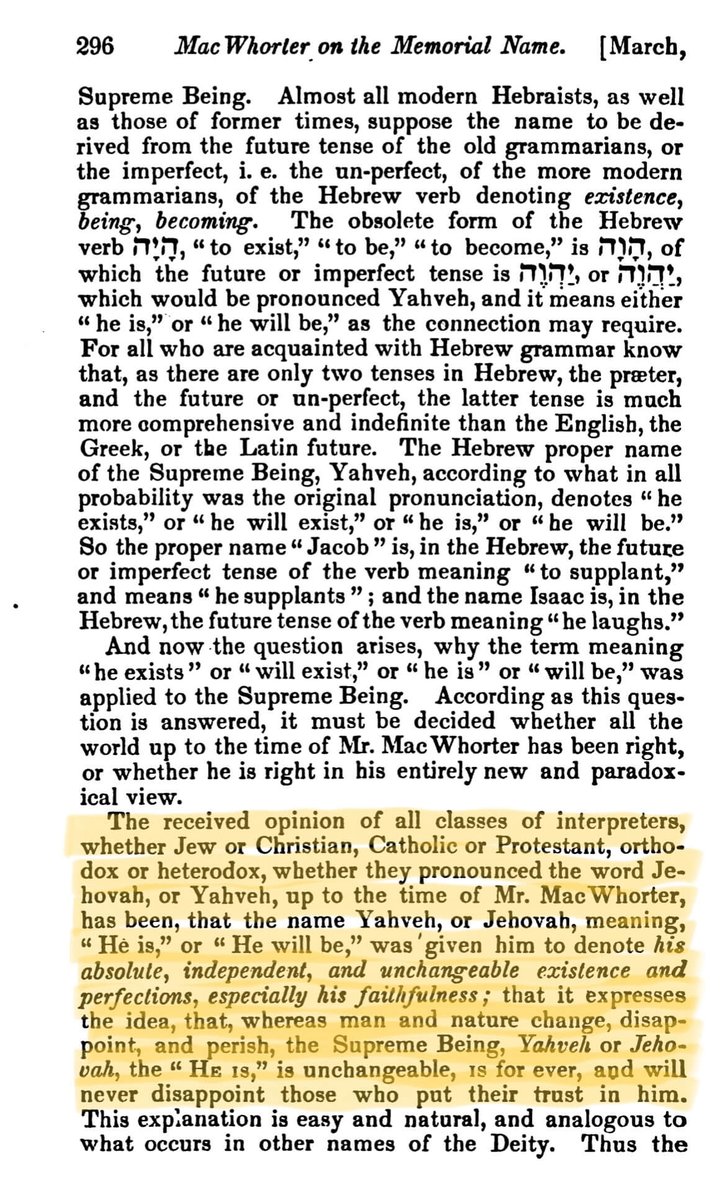
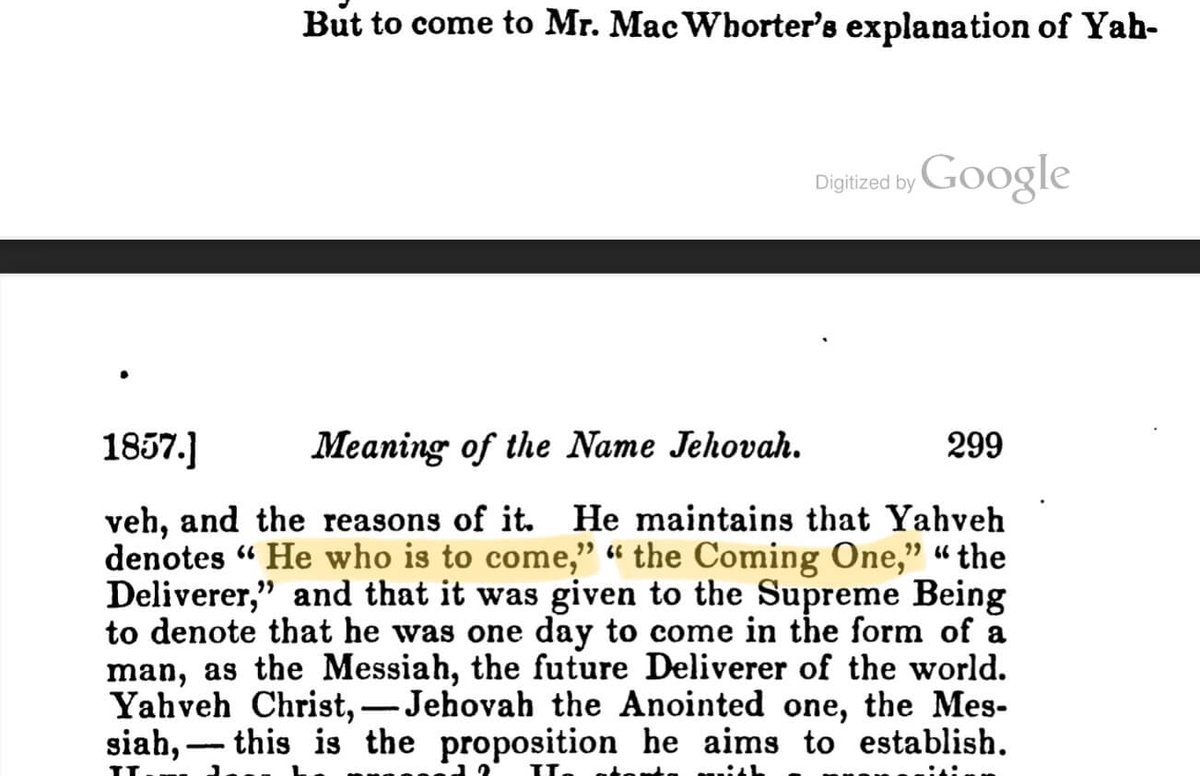
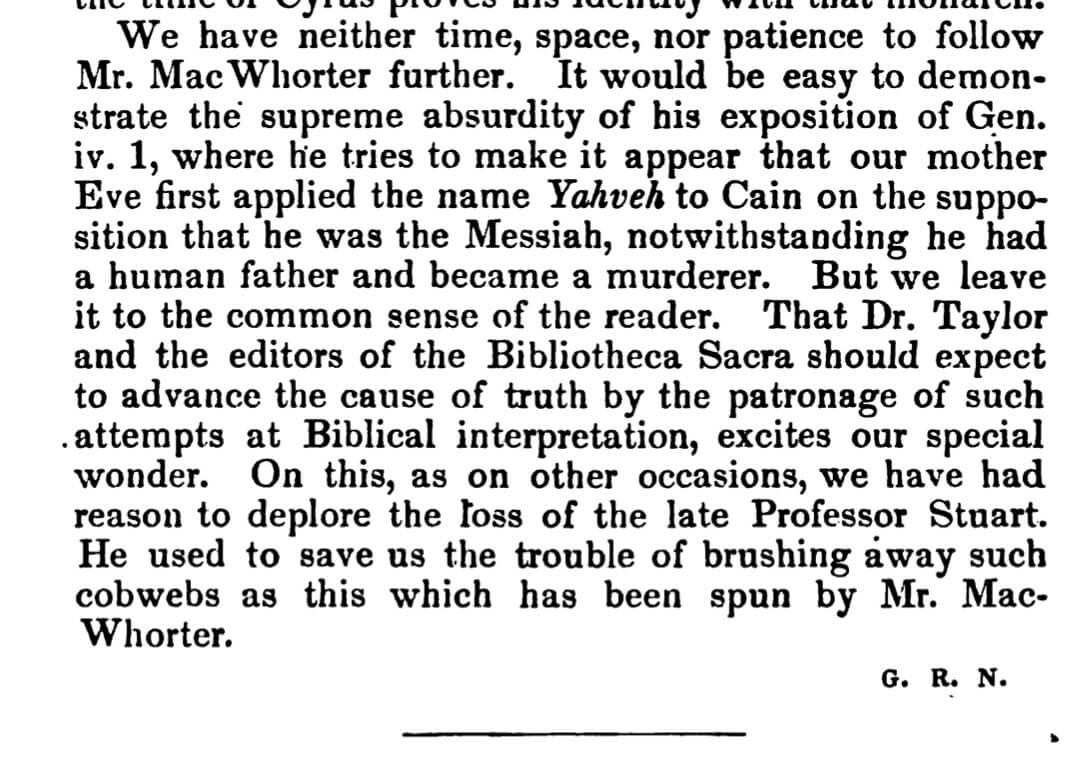




Unfortunately, even more apostate men than MW quickly stumbled across his blasphemy. John Thomas and the Christadelphians, a Unitarian sect was thrilled with MW's "new Christology" as it helped them amplifying their own proto-Zionist dispensationalism. 23🧵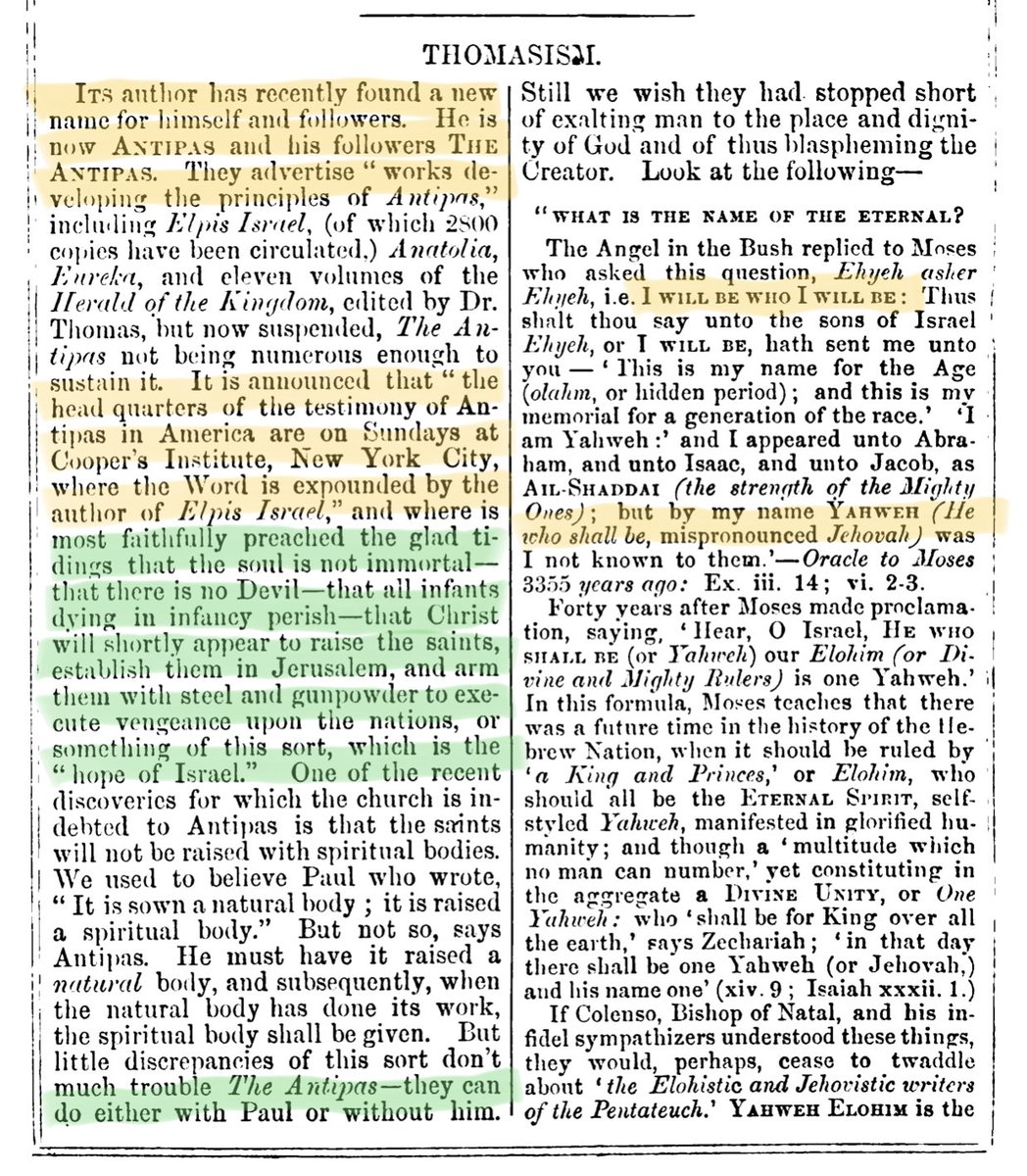

That MW's Yahvehism would resonate with Unitarians is unsurprising. The 179 pages is riddled with confusion that defies categorization in any existing Trinitarian heresy, but its completion is found in the collapse of the Trinity into a Jesus-based "Unity". 24🧵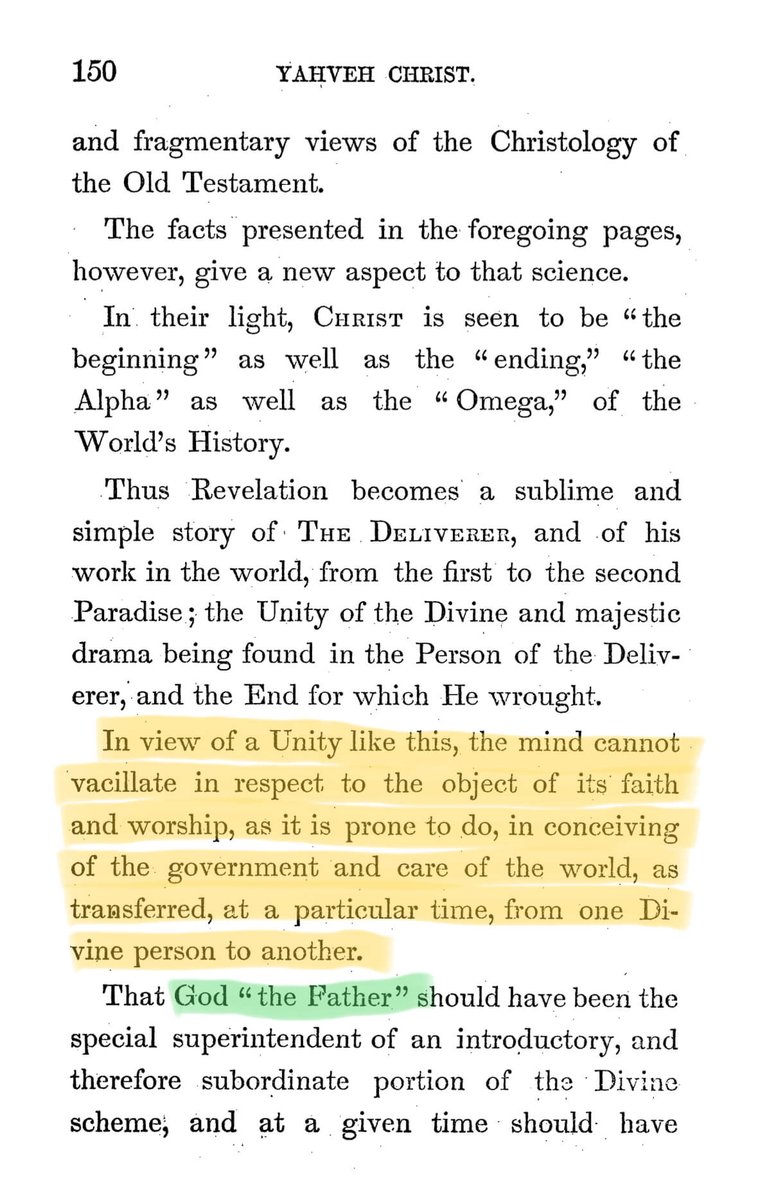

One particularly disturbing aspect of the Christadelphian adoption of MW's Yahvehism is their immediate rebranding for the purposes of publication as "Antipas". This cult which denies the devil assumes the name meaning "against all". The whole scene is hair-raising. 25🧵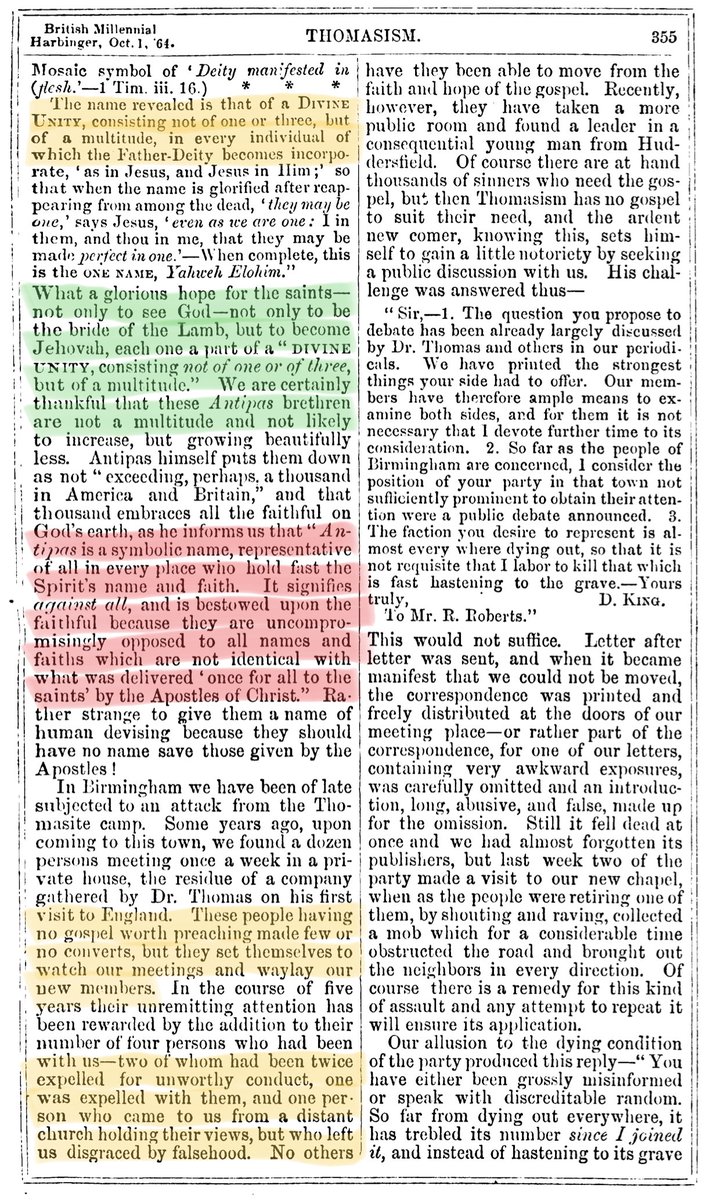

The publication records show MW's "Yahveh" spelling took off in the 1880s, peaking around 1890, and then rapidly falling off again by 1900. The trivially variant spelling "Yahweh" which we take for granted today lingered in the background, until exploding this century. 26🧵
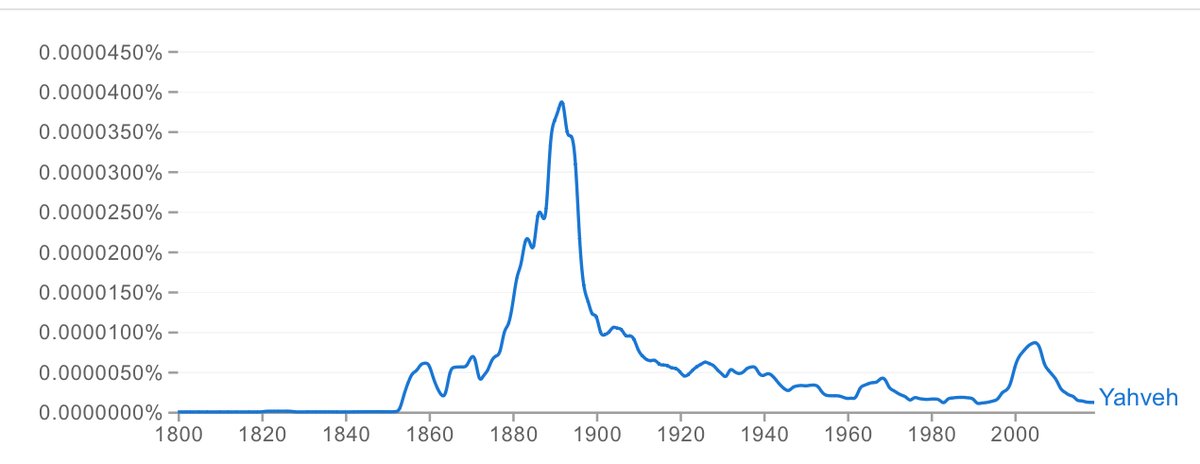
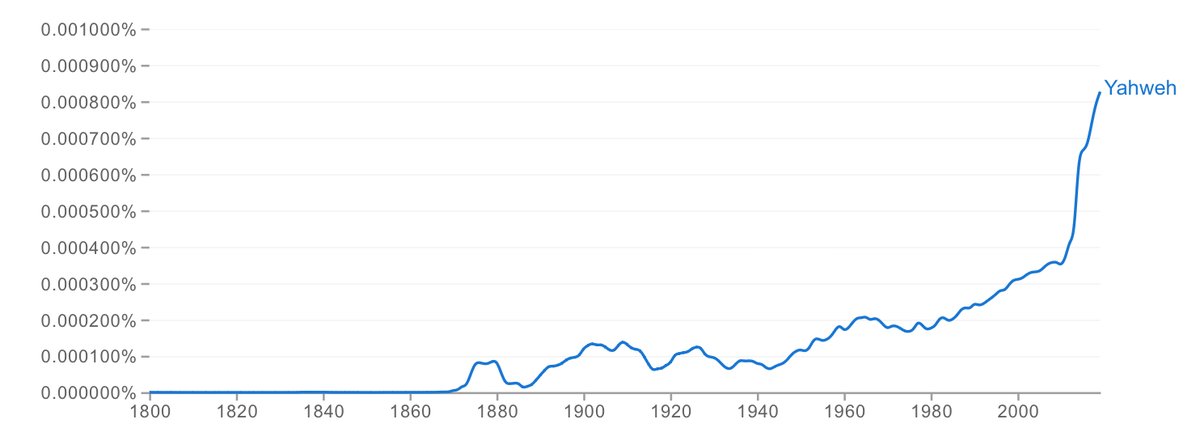


So what are we to make of all this? Firstly, the behavior of un-translating God's "I am" back into some particular ancient sound has at most six centuries of history. The idea of replacing the Word with some specific noise is a novelty without theological warrant. 27🧵
Secondly, the specific genealogy of the <2 century-old "Yahweh" is 100% evil. A philologist briefly flubs an unimportant academic question. A man who denies the Inspiration of Scripture uses that error to read back into Scripture words that are literally absent. 28🧵
That man invents a "new Christology" that denies God's eternal nature as the great "I am", makes extensive claims on the need for "Unity" in God, denies Scripture itself repeatedly, and calls Jesus and the NT writers thralls of paganism. 29🧵
That man's newly invented "Yahweh" religion resonates deeply with a nascent non-Christian sect that promptly rebrands as the decidedly Satanic sentiment "against all" while denying the existence of the Devil. 30🧵
Coming from these specific circumstances whee such men claim "Yahweh" means "he who is to come" or "the coming one" I simply do not see how any Christian can hear it and not believe it is their prophecy and threat against us of the antichrist. 31🧵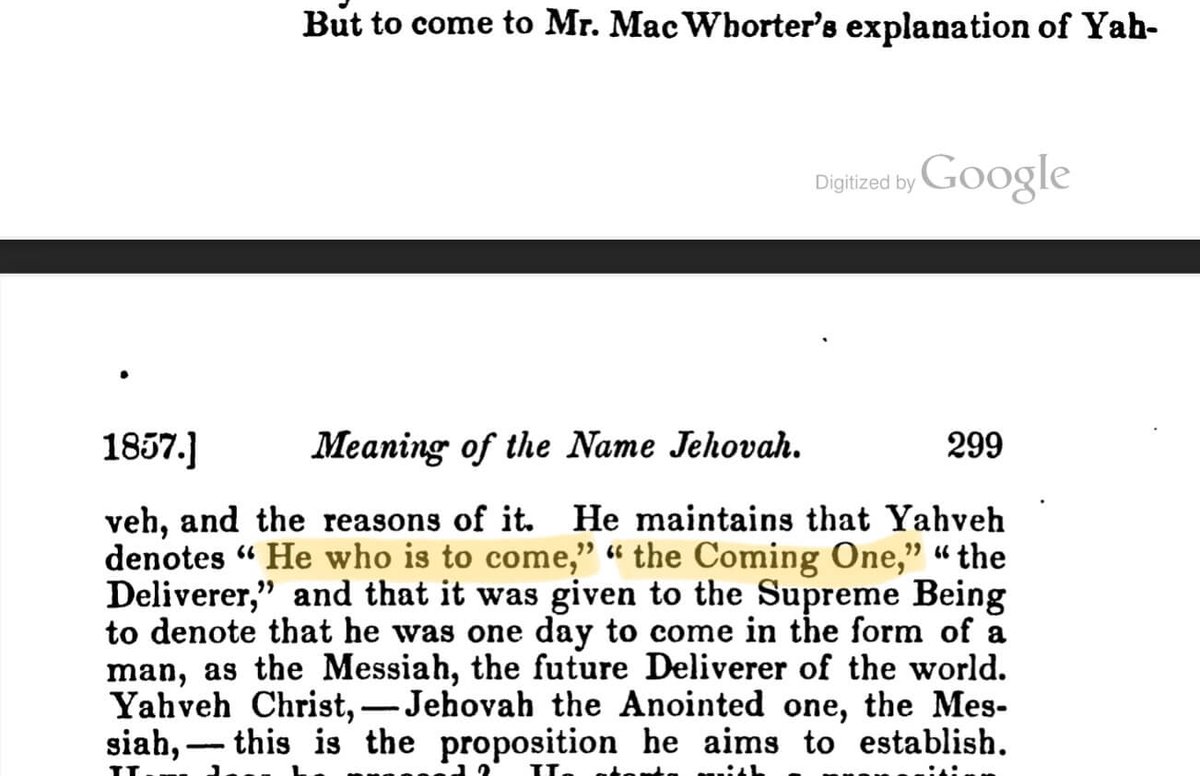

But of course these tactics always appeal to indolent Christians who revel in snatching shiny baubles off the ground and carrying them into their churches and hearts, where they are baptized as sound doctrine, against all reason, history, or Scriptural warrant. 32🧵
Nobody cares what they meant when they came up with a plainly novel, extra-Christian idea.
"Oh that sounds nice, and isn't it pious! Why this just feels so authentically Judeo-Christian".
Yes, yes it does. And that is the real root of the problem. 33🧵
"Oh that sounds nice, and isn't it pious! Why this just feels so authentically Judeo-Christian".
Yes, yes it does. And that is the real root of the problem. 33🧵
Correction: I made 1 important mistake. Had 40 tabs open, & must have lost track. I only spent a couple minutes running this down, since it wasn't the main thrust. LXX Exodus 3:15 uses Κύριος ὁ Θεὸς "Lord God" which hammers the point of the thread home even harder than my error. 35🧵
Additionally, the numerous OT quotations in the NT all use the Greek word for Lord: Mt.3:3; 22:37; Mk.12:29; Lk.4:18.
It is corruption, not restoration, to ignore this and focus on ancient sounds. 36🧵
It is corruption, not restoration, to ignore this and focus on ancient sounds. 36🧵
@RevEspinosa Thank you very much for correcting my mistake. Didn't spend all that time to make such a dumb error. Thankfully it didn't detract from the point.